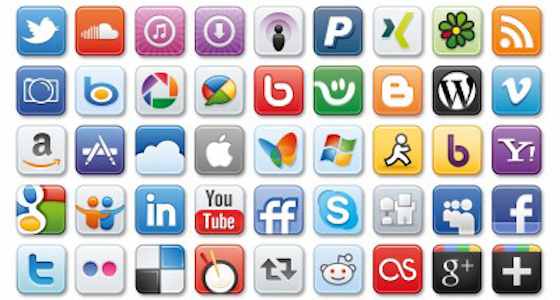- MENU
- HOME
- SEARCH
- WORLD
- MAIN
- AFRICA
- ASIA
- BALKANS
- EUROPE
- LATIN AMERICA
- MIDDLE EAST
- United Kingdom
- United States
- Argentina
- Australia
- Austria
- Benelux
- Brazil
- Canada
- China
- France
- Germany
- Greece
- Hungary
- India
- Indonesia
- Ireland
- Israel
- Italy
- Japan
- Korea
- Mexico
- New Zealand
- Pakistan
- Philippines
- Poland
- Russia
- South Africa
- Spain
- Taiwan
- Turkey
- USA
- BUSINESS
- WEALTH
- STOCKS
- TECH
- HEALTH
- LIFESTYLE
- ENTERTAINMENT
- SPORTS
- RSS
- iHaveNet.com
Bill Clerico

Many people complain about the social media "time suck," but as a company that tries to continually engage its customers, we find that it's actually the most efficient way to have conversations en masse. With Twitter, we can immediately measure customer reaction to new product features, marketing campaigns and events, and adjust our plans accordingly. With Facebook, we have a platform to immediately poll customers and to engage them by running contests and asking them about their businesses.
However, we've also found that this communication medium can be a distraction in some cases. Since any customer can vent any opinion at any time, it can be distracting when some customers are inevitably frustrated or unhappy. It can be tempting to focus on solving every Twitter complaint, instead of absorbing the feedback and using it to shape long-term, more scalable strategy. You have to learn quickly that you can't make every customer happy every time.
Be a Smart User of Social Media
As a company, we leverage social media in two major ways. First, we have our official corporate presences on Twitter and Facebook. We typically post content that's directly relevant to our product, responses to customer questions, or questions and contests to engage customers. We are careful to keep these interactions in line with our brand.
Also, most, if not all, of our employees have personal Facebook and Twitter accounts, and they use them to connect with customers directly as well. Sometimes I'll respond to a question from my personal account to show there's a human face behind our company. Customers seem to appreciate this -- it's harder to be mad at a real person who is trying to solve your problem than at a faceless corporation.
Empower Your Employees
Employees across the whole company do the same, and we encourage them to be open and genuine. Although some companies might be afraid of entrusting every employee with the ability to speak with customers, I believe that the benefits far outweigh the risks. In addition to helping the customer associate the company with a human face, it's also great for the employees because it creates a personal connection between the employee and the customer. They can use the knowledge gleaned from these interactions to better inform product, marketing, sales and support decisions. It's great for morale -- nothing is more motivating in their jobs than the knowledge that they made someone else's day better.
Before Twitter or Facebook, this was a lot harder to do, and it required a big and ongoing investment of time and money in customer panels or focus groups. There's no specific instruction to my staff that they have to engage customers in this way, but I've found that most folks are eager to do it. It's a minimal amount of time spent that pays massive dividends in terms of productivity, morale and better-informed decision-making. And since we're a hard-working, fast-moving startup, a few minutes spent tweeting instead of "working" doesn't really detract from the workday. (We all live in the office anyway!)
Spend Enough Time on Social Media
Personally, I spend about 30 minutes a day on social media. I try to spend the time in two ways. First, I use it to stay abreast of customer sentiment and relevant industry happenings. Second, I try to find, produce and syndicate interesting content so that my accounts gain more followers and influence. By making a consistent investment of time in both of these categories, I've managed to turn social media from a fun "time suck" into an invaluable tool for managing WePay.
Photo Credit:@Alexander Kirch/123rf.com